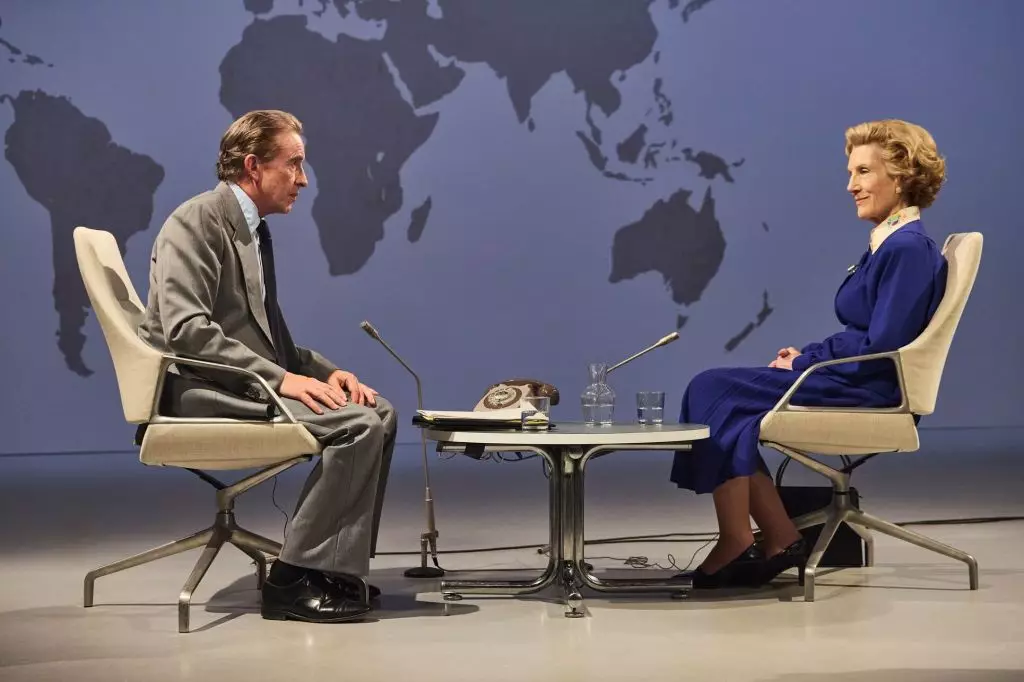Channel 4’s forthcoming drama, *Brian and Maggie*, showcases a critical moment in British political history. Set to star Harriet Walter as the iconic Margaret Thatcher and Steve Coogan portraying journalist Brian Walden, this two-part series aims to delve into the intensity of Thatcher’s last significant televised interview. Originally titled *Brian and Margaret*, this series encapsulates an encounter that would reverberate through public consciousness, fundamentally altering perceptions of political storytelling on television.
The narrative revolves around the 45-minute interview that concluded with a decisive political fallout, ultimately leading to Thatcher’s resignation. This confrontation epitomized political journalism’s power at a time when such formats were not only respected but also expected to influence national and political dynamics. Channel 4’s exploration aligns with contemporary discussions about the implications of diminishing political interview formats on modern democracy.
Insights from Notable Creators
Helmed by seasoned creators James Graham and Stephen Frears, *Brian and Maggie* benefits from their knack for engaging storytelling. This project marks a pivotal entry point for Ollie Madden, Channel 4’s new head of drama and film, as it represents the inaugural drama commissioned under his direction. Madden’s oversight indicates a potential shift in the type of narratives Channel 4 intends to foster, especially those that compel audiences to reconsider how television engages with political discourse.
Citing the series’ parallels with the renowned *Frost/Nixon* interview dramatization, we can anticipate that *Brian and Maggie* will not only recount a historic exchange but also provoke audiences to reflect on the circumstances that position journalism as an essential pillar of democracy. Particularly intriguing is the series’ basis on details from Rob Burley’s book, *Why Is This Lying Bastard Lying to Me*, which lends a layer of authenticity and insight into the mechanisms of political interviews.
The Importance of Political Narratives
Beyond its historical context, the drama’s thematic focus raises significant questions about the current state of political interviews. In an age where media consumption is evolving dramatically, there is an evident concern that the slow decline of in-depth political conversations might contribute to a more superficial understanding of democracy and governance. As politicians increasingly opt for soundbites rather than substantive discussions, *Brian and Maggie* serves as a crucial reminder of the weight and gravity that political dialogues once held.
Supported by prominent figures in production like Baby Cow Productions and the team behind *Black Mirror* and *A Very British Scandal*, the drama has already generated anticipation. It highlights how creative storytelling can intersect with political realities, bringing renewed attention to the vital role of interviews in shaping public perception and accountability.
*Brian and Maggie* not only aims to resurrect a significant moment from political history but also stimulates discourse around the necessity of thoughtful political engagement in contemporary society. Its impact may well extend beyond the screen, prompting audiences to reconsider the value of dialogue in preserving democratic principles.

